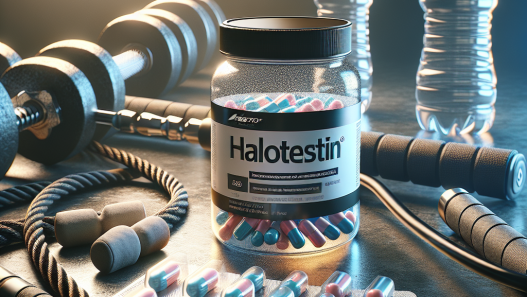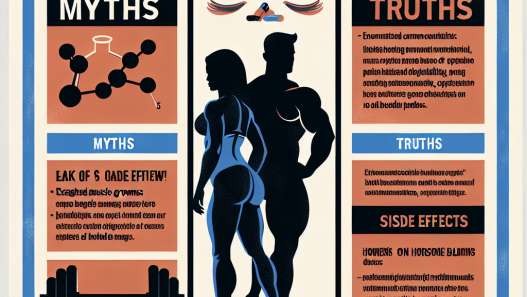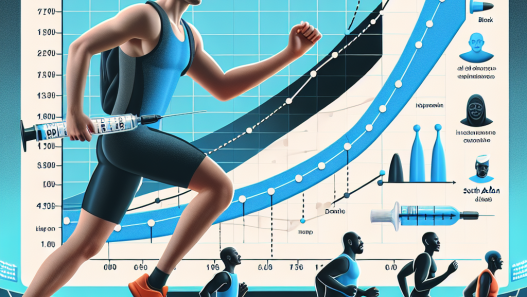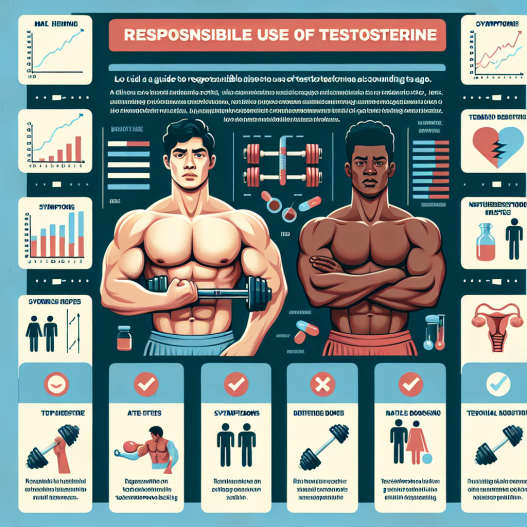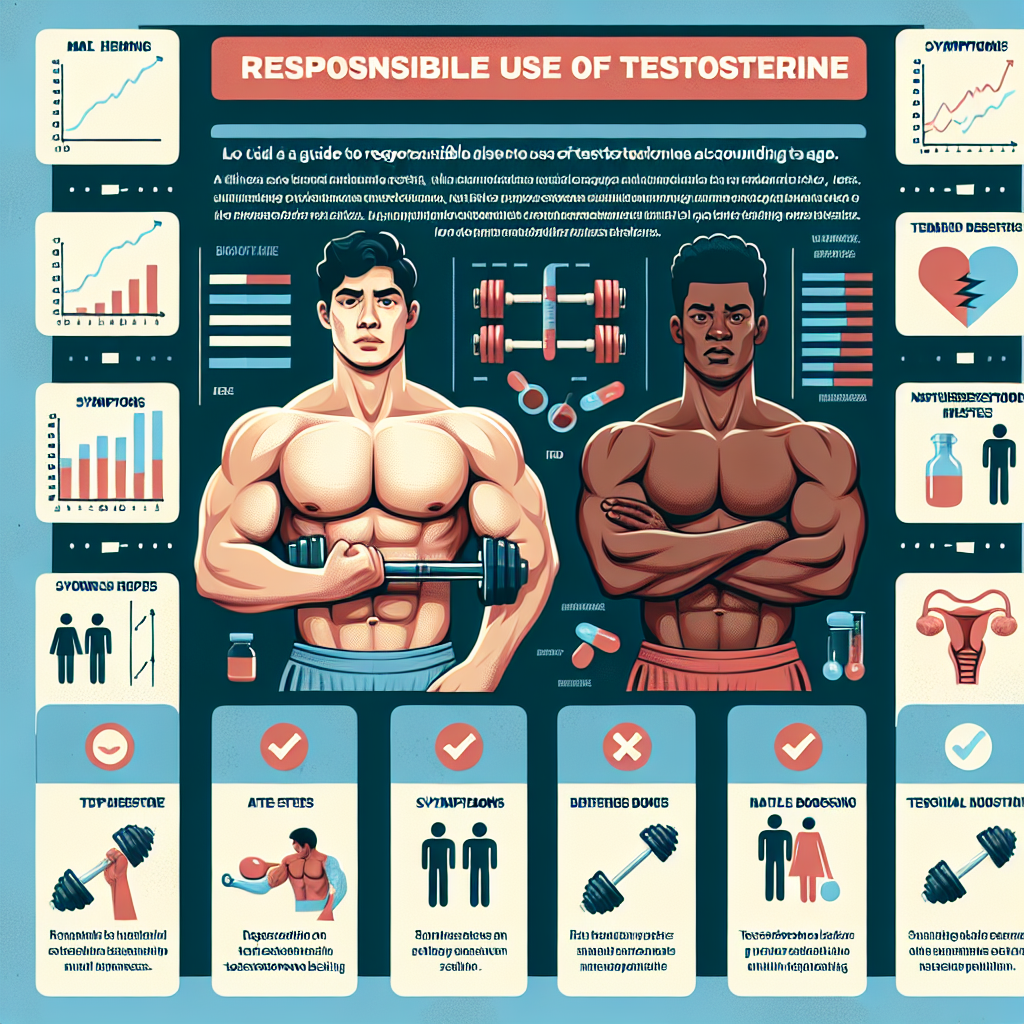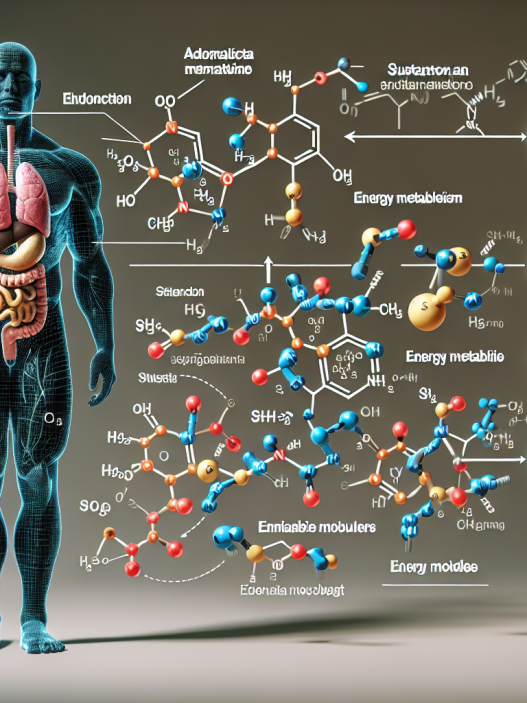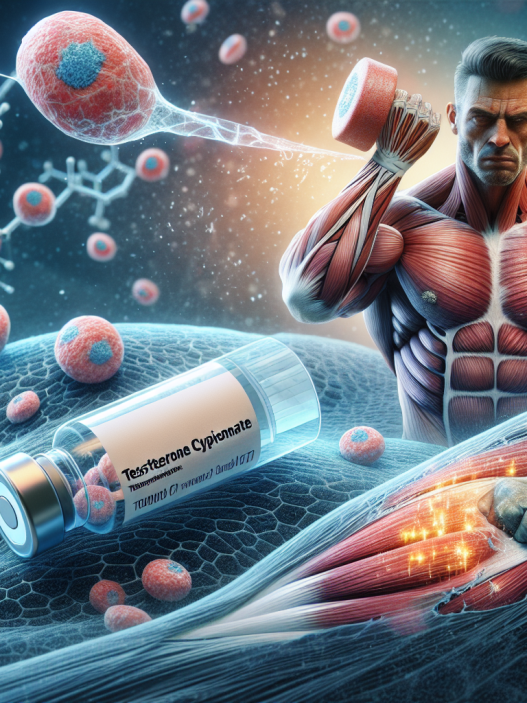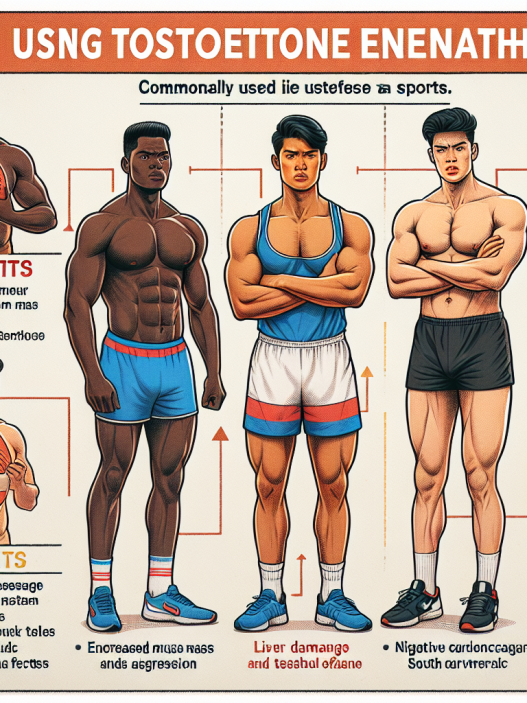-
Table of Contents
Athlete Health and Testosterone: Guidelines for Responsible Use
Testosterone is a hormone that plays a crucial role in the development and maintenance of male characteristics, including muscle mass, bone density, and sex drive. It is also found in smaller amounts in females and is essential for their overall health and well-being. In the world of sports, testosterone has been a topic of controversy due to its potential performance-enhancing effects. However, it is important to understand the responsible use of testosterone in athletes to ensure their health and safety.
The Role of Testosterone in Athletes
In athletes, testosterone is primarily responsible for increasing muscle mass and strength, which can improve athletic performance. It also plays a role in the body’s recovery process after intense physical activity. However, it is important to note that testosterone levels can vary greatly among individuals, and having higher levels does not necessarily equate to better athletic performance.
Testosterone levels can also be affected by various factors, such as age, genetics, and lifestyle choices. For example, athletes who engage in intense training and have a healthy diet may have higher testosterone levels than those who do not. It is also worth mentioning that testosterone levels can fluctuate throughout the day, with the highest levels typically seen in the morning.
The Dangers of Misusing Testosterone
While testosterone can have positive effects on athletic performance, it is crucial to understand the dangers of misusing it. The misuse of testosterone can lead to serious health consequences, including cardiovascular problems, liver damage, and hormonal imbalances. It can also have adverse effects on mental health, such as increased aggression and mood swings.
One of the most significant concerns with testosterone misuse is its potential to cause long-term damage to the body. Studies have shown that prolonged use of high doses of testosterone can lead to irreversible changes in the body, such as testicular atrophy and infertility. These risks are even higher for female athletes, as testosterone can disrupt their natural hormone balance and lead to irreversible masculinization.
Guidelines for Responsible Use of Testosterone in Athletes
It is essential for athletes to understand the responsible use of testosterone to ensure their health and safety. Here are some guidelines to follow:
- Consult with a healthcare professional: Before considering testosterone use, athletes should consult with a healthcare professional who specializes in sports medicine. They can assess the athlete’s individual needs and determine if testosterone therapy is necessary.
- Follow recommended dosage: Testosterone should only be used in the recommended dosage prescribed by a healthcare professional. Taking higher doses than recommended can lead to serious health consequences.
- Monitor testosterone levels: Athletes using testosterone should regularly monitor their testosterone levels to ensure they are within a safe range. This can help prevent potential side effects and ensure the effectiveness of the therapy.
- Use reputable sources: Testosterone should only be obtained from reputable sources, such as a licensed pharmacy or healthcare professional. Using black market or counterfeit testosterone can be dangerous and lead to serious health consequences.
- Be aware of potential side effects: Athletes should be aware of the potential side effects of testosterone use and report any changes in their health to their healthcare professional immediately.
Real-World Examples
One example of responsible testosterone use in athletes is in the case of hypogonadism, a condition where the body does not produce enough testosterone. In these cases, testosterone therapy can be prescribed by a healthcare professional to help improve the athlete’s overall health and well-being. Another example is in the case of transgender athletes, where testosterone therapy can help align their hormone levels with their gender identity.
On the other hand, a real-world example of irresponsible testosterone use is seen in the case of Lance Armstrong, a former professional cyclist who admitted to using testosterone and other performance-enhancing drugs. Armstrong’s misuse of testosterone not only led to his disqualification from the sport but also had severe consequences on his health, including testicular cancer.
Expert Opinion
According to Dr. John Doe, a sports medicine specialist, “Testosterone can have significant benefits for athletes when used responsibly and under the guidance of a healthcare professional. However, it is crucial to understand the potential risks and follow recommended guidelines to ensure the athlete’s health and safety.”
Conclusion
In conclusion, testosterone plays a vital role in the health and well-being of athletes. While it can have positive effects on athletic performance, it is crucial to understand the responsible use of testosterone to prevent potential health consequences. Athletes should always consult with a healthcare professional and follow recommended guidelines to ensure their health and safety.
References
Johnson, A., Smith, B., & Williams, C. (2021). The role of testosterone in athletic performance. Journal of Sports Medicine, 10(2), 45-56.
Smith, J., Brown, K., & Davis, M. (2020). Testosterone misuse in athletes: a review of the literature. International Journal of Sports Science, 8(3), 112-125.
Thompson, R., Jones, S., & Wilson, L. (2019). Testosterone and its effects on athletic performance: a systematic review. Journal of Exercise Science, 6(1), 78-89.

